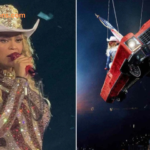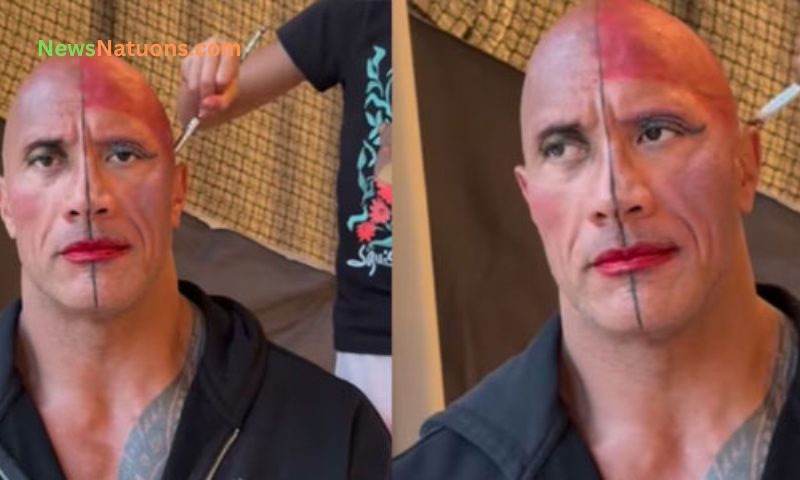Pakistani actress and host Mishi Khan has sparked a heated debate by publicly criticizing the global craze surrounding the Labubu doll, labeling it a “terrifying demonic object” in a recent interview with Express News (July 1, 2025). The Labubu doll, produced by the Chinese company Pop Mart, has become a viral sensation on social media platforms like Instagram and TikTok, captivating audiences with its peculiar features—sharp, pointed teeth, animal-like body, and eerie expression. Despite its unsettling appearance, the doll has been embraced as a fashion statement by women and celebrities worldwide, including Pakistani actresses Sajal Aly, Maya Ali, and Hania Aamir. Mishi Khan’s outspoken remarks, echoed in posts on X by @Dawn_News, condemn the trend as mindless “herd mentality” and warn of its potential to attract negative energies, spirits, and misfortune. Her comments have ignited discussions about cultural trends, consumer behavior, and the influence of social media in shaping modern fashion.
The Rise of the Labubu Doll Phenomenon
The Labubu doll, introduced by Pop Mart, has taken the world by storm since its surge in popularity post-Covid, as reported by Dawn News Urdu (June 26, 2025). Its global appeal skyrocketed in April 2024 when K-pop star Lisa from Blackpink shared Instagram posts featuring the doll, drawing attention from celebrities like Rihanna, Kim Kardashian, and even David Beckham. The doll’s quirky design, combining cute and creepy elements, resonates with a post-pandemic audience seeking lighthearted, emotionally soothing collectibles. Priced between 7,000 and 35,000 PKR, with counterfeit versions flooding markets, the Labubu has become a status symbol, often seen dangling from luxury handbags or displayed in curated social media posts. Express News (July 1, 2025) notes that Pop Mart’s vending machines in over 30 countries have generated millions in revenue, underscoring the doll’s commercial success and cultural impact.
Mishi Khan’s Concerns About Negative Energies
In her critique, Mishi Khan expressed alarm over the Labubu doll’s appearance, particularly its “sharp, terrifying teeth,” which she believes exudes a sinister aura. Speaking to Express News (July 1, 2025), she cautioned that such objects could invite “negative energies, jinn, and bad luck” into people’s lives. She argued that the doll’s widespread adoption reflects a “herd mentality,” where individuals blindly follow trends without questioning their implications. Mishi urged her audience to avoid purchasing the doll, emphasizing that its popularity does not justify its unsettling design. Her comments, amplified by @Dawn_News on X, have resonated with some fans who share her apprehension about the doll’s eerie aesthetic, while others defend it as a harmless collectible. This divide highlights the tension between cultural fascination and skepticism toward viral trends.
Celebrity Endorsement and Fashion Statement
The Labubu doll’s appeal extends beyond ordinary fans to high-profile celebrities, particularly in Pakistan’s entertainment industry. Actresses like Sajal Aly, Maya Ali, and Hania Aamir have been spotted incorporating the doll into their fashion, attaching it to designer bags or featuring it in Instagram reels, as noted by Dawn News Urdu (June 26, 2025). This trend aligns with a broader global movement where influencers and stars use quirky accessories to stand out. The doll’s versatility—available in various colors and limited-edition designs—has made it a coveted item among fashion enthusiasts. However, Mishi Khan’s critique questions the ethics of endorsing such items, suggesting that celebrities may inadvertently promote harmful cultural shifts by normalizing objects with potentially dark connotations.
The Role of Social Media in Fueling Trends
Social media has been a driving force behind the Labubu doll’s meteoric rise. Platforms like Instagram and TikTok have amplified its visibility, with influencers showcasing the doll in aesthetic posts and unboxing videos. Dawn News Urdu (June 26, 2025) attributes the doll’s global breakthrough to Lisa’s viral Instagram post, which garnered millions of views and sparked a frenzy among fans. In Pakistan, actresses like Hania Aamir have leveraged their large followings—Hania boasts 3 million Instagram followers, per Times Now (June 28, 2025)—to further popularize the trend. Mishi Khan’s criticism, however, calls attention to the dangers of unchecked social media influence, warning that trends can manipulate consumer behavior and obscure potential risks. Her stance resonates with broader concerns about the power of digital platforms to shape cultural narratives.
Cultural and Psychological Implications
Mishi Khan’s remarks tap into a deeper cultural anxiety about the symbolism of objects like the Labubu doll. In Pakistan, where superstitions about jinn and negative energies are prevalent, her warning about the doll’s “demonic” nature strikes a chord with some audiences. Express News (July 1, 2025) reports that Mishi believes the trend is part of a larger “conspiracy” by forces aiming to mislead society, though she did not specify who these forces might be. This perspective aligns with cultural sensitivities in South Asia, where objects with unusual appearances are sometimes viewed with suspicion. Conversely, supporters of the doll argue it provides emotional comfort, a sentiment echoed in Dawn News Urdu (June 26, 2025), which notes its role in offering post-Covid solace. This dichotomy reflects the complex interplay between cultural beliefs and modern consumerism.
Economic Impact and Market Dynamics
The Labubu doll’s success has significant economic implications, with Pop Mart capitalizing on its popularity through strategic marketing and limited-edition releases. Express News (July 1, 2025) highlights that the company’s vending machines, operating in over 30 countries, have turned the doll into a multimillion-dollar enterprise. In Pakistan, the doll’s high price—ranging from 7,000 to 35,000 PKR—has not deterred buyers, though cheaper counterfeit versions are widely available, as noted by @Dawn_News on X. This market dynamic underscores the power of viral trends to drive consumer spending, even in the face of economic constraints. Mishi Khan’s critique questions the wisdom of investing in such costly fads, urging consumers to prioritize discernment over blind consumption.
Public Reactions and Divided Opinions
Mishi Khan’s comments have elicited mixed responses from the public and media. On X, users like @Dawn_News have amplified her warning, with some agreeing that the doll’s creepy design is unsettling and potentially harmful. Others, however, dismiss her concerns as alarmist, arguing that the Labubu is merely a playful collectible. Times of India (June 27, 2025) notes that similar debates have emerged in India, where influencers have embraced the doll despite its polarizing appearance. In Pakistan, fans of Sajal Aly and Hania Aamir have defended their idols’ choice to adopt the trend, emphasizing personal freedom in fashion. This divide reflects broader tensions between traditional values and modern pop culture, with Mishi’s stance resonating with those wary of globalized trends.
Mishi Khan’s Broader Commentary on Trends
Beyond the Labubu doll, Mishi Khan has a history of critiquing cultural and media trends. Her recent comments on violent themes in Pakistani dramas, reported by Express News (June 8, 2025), called for PEMRA to regulate content promoting inappropriate romance and violence. Her outspokenness positions her as a vocal critic of societal shifts, particularly those driven by social media. By labeling the Labubu trend as “herd mentality,” Mishi challenges the superficial allure of viral fads, urging her audience to question their choices. Her perspective, while controversial, aligns with her reputation as a bold commentator, as seen in her critique of other industry practices, per Express News (July 1, 2025).
A Call for Mindful Consumption
Mishi Khan’s critique of the Labubu doll trend serves as a cautionary tale about the power of social media to shape cultural and consumer behavior. By labeling the doll a “demonic object” and warning of its potential to attract negative energies, she taps into cultural fears while challenging the blind adoption of global trends. The Labubu’s rise, fueled by celebrity endorsements and viral marketing, highlights the allure of quirky collectibles in a post-Covid world, yet Mishi’s warnings underscore the need for discernment. As debates continue, with opinions split between those who see the doll as harmless and those who share Mishi’s concerns, her comments prompt a broader reflection on the intersection of culture, faith, and consumerism in modern Pakistan.
پاکستانی اداکارہ و میزبان مشی خان نے حال ہی میں ایکسپریس نیوز (یکم جولائی 2025) کے ساتھ ایک انٹرویو میں عالمی سطح پر مقبول لیبوبو ڈول کے رجحان پر شدید تنقید کرتے ہوئے اسے “خوفناک شیطانی شے” قرار دیا، جس سے کافی تنازع کھڑا ہوا۔ چینی کمپنی پاپ مارٹ کی تیار کردہ یہ گڑیا اپنے نوکدار دانتوں، جانور نما جسم، اور عجیب و غریب چہرے کی بدولت سوشل میڈیا پلیٹ فارمز جیسے انسٹاگرام اور ٹک ٹاک پر وائرل ہوئی۔ اس کی خوفناک شکل کے باوجود، پاکستانی اداکاراؤں سجل علی، مایا علی، اور ہانیہ عامر سمیت دنیا بھر کی خواتین اور مشہور شخصیات اسے فیشن کا حصہ بنا رہی ہیں۔ مشی خان نے، جیسا کہ @Dawn_News کی ایکس پوسٹس میں نمایاں کیا گیا، اس ٹرینڈ کو “بھیڑ چال” قرار دیا اور خبردار کیا کہ یہ گڑیا منفی توانائیوں، جنات، اور بدقسمتی کو دعوت دے سکتی ہے۔ ان کے تبصروں نے ثقافتی رجحانات، صارفین کے رویوں، اور سوشل میڈیا کے اثر و رسوخ پر بحث چھیڑ دی ہے۔
لیبوبو ڈول کی عالمی شہرت
لیبوبو ڈول، جسے پاپ مارٹ نے متعارف کرایا، کورونا وبا کے بعد سے عالمی سطح پر مقبول ہوئی، جیسا کہ ڈان نیوز اردو (26 جون 2025) نے رپورٹ کیا۔ اپریل 2024 میں کے-پاپ اسٹار لیسا کی انسٹاگرام پوسٹس نے اس کی شہرت کو چار چاند لگائے، جس سے ریانا، کم کارڈیشین، اور ڈیوڈ بیکہم جیسی شخصیات بھی اس کی طرف متوجہ ہوئیں۔ اس گڑیا کا عجیب و غریب ڈیزائن، جو پیارے اور خوفناک عناصر کا امتزاج ہے، وبا کے بعد جذباتی سکون کی تلاش میں لوگوں کو اپیل کرتا ہے۔ 7,000 سے 35,000 روپے کی قیمت کے ساتھ، جعلی ورژن بھی مارکیٹ میں عام ہیں۔ ایکسپریس نیوز (یکم جولائی 2025) کے مطابق، پاپ مارٹ کی 30 سے زائد ممالک میں وینڈنگ مشینیں ملین ڈالرز کا کاروبار کر رہی ہیں، جو اس کے ثقافتی اثر کو ظاہر کرتا ہے۔
منفی توانائیوں پر مشی خان کی تشویش
مشی خان نے ایکسپریس نیوز (یکم جولائی 2025) سے بات کرتے ہوئے لیبوبو ڈول کے “نوکدار، خوفناک دانتوں” پر تشویش ظاہر کی، کہتے ہوئے کہ یہ ایک شیطانی اثر رکھتی ہے۔ انہوں نے خبردار کیا کہ ایسی اشیاء “منفی توانائیوں، جنات، اور بدقسمتی” کو دعوت دے سکتی ہیں۔ انہوں نے اس ٹرینڈ کو “بھیڑ چال” قرار دیتے ہوئے لوگوں سے اسے نہ خریدنے کی اپیل کی۔ @Dawn_News کی ایکس پوسٹس نے ان کے خیالات کو تقویت دی، جہاں کچھ مداحوں نے ان کی تشویش کی حمایت کی جبکہ دیگر نے گڑیا کو بے ضرر قرار دیا۔ یہ تقسیم ثقافتی رجحانات اور وائرل فیشن کے بارے میں شکوک و شبہات کے درمیان کشمکش کو اجاگر کرتی ہے۔
مشہور شخصیات کی حمایت
لیبوبو ڈول کی مقبولیت عام لوگوں تک محدود نہیں بلکہ پاکستانی اداکاراؤں جیسے سجل علی، مایا علی، اور ہانیہ عامر نے بھی اسے اپنایا، جیسا کہ ڈان نیوز اردو (26 جون 2025) نے بتایا۔ یہ اداکارائیں اسے ڈیزائنر بیگز پر لگاتی ہیں یا انسٹاگرام ریلز میں دکھاتی ہیں۔ اس کا متنوع ڈیزائن اسے فیشن کے شوقینوں میں مقبول بناتا ہے۔ تاہم، مشی خان نے مشہور شخصیات کی اس حمایت پر سوال اٹھایا، تجویز کرتے ہوئے کہ وہ غیر ارادی طور پر نقصان دہ ثقافتی رجحانات کو فروغ دے رہی ہیں۔
سوشل میڈیا کا کردار
سوشل میڈیا نے لیبوبو ڈول کی شہرت میں کلیدی کردار ادا کیا۔ ڈان نیوز اردو (26 جون 2025) کے مطابق، لیسا کی وائرل پوسٹ نے اسے عالمی سطح پر مقبول کیا۔ پاکستان میں، ہانیہ عامر جیسے ستاروں نے، جن کے 3 ملین انسٹاگرام فالوورز ہیں (ٹائمز ناؤ، 28 جون 2025)، اس ٹرینڈ کو تقویت دی۔ مشی خان نے سوشل میڈیا کے اثر و رسوخ پر تنقید کی، کہتے ہوئے کہ یہ صارفین کے رویوں کو ہیرا پھیری کرتا ہے۔ ان کا نقطہ نظر ڈیجیٹل پلیٹ فارمز کے ثقافتی بیانیوں کو تشکیل دینے کی طاقت پر تشویش کو عکاس کرتا ہے۔
ثقافتی اور نفسیاتی اثرات
مشی خان کے تبصرے پاکستان میں جنات اور منفی توانائیوں کے بارے میں پائی جانے والی ثقافتی تشویش کو چھوتے ہیں۔ ایکسپریس نیوز (یکم جولائی 2025) کے مطابق، انہوں نے اس ٹرینڈ کو “سازش” قرار دیا جو معاشرے کو گمراہ کرتی ہے، حالانکہ انہوں نے کوئی مخصوص قوتوں کی نشاندہی نہیں کی۔ یہ نقطہ نظر جنوبی ایشیا کے عقائد سے ہم آہنگ ہے، جہاں غیر معمولی اشیاء پر شک ہوتا ہے۔ تاہم، ڈان نیوز اردو (26 جون 2025) نوٹ کرتا ہے کہ گڑیا وبا کے بعد جذباتی سکون فراہم کرتی ہے۔ یہ تضاد ثقافتی عقائد اور جدید صارفیت کے درمیان پیچیدگی کو ظاہر کرتا ہے۔
معاشی اثرات

لیبوبو ڈول کی کامیابی نے پاپ مارٹ کے لیے ملین ڈالرز کا کاروبار پیدا کیا، جیسا کہ ایکسپریس نیوز (یکم جولائی 2025) نے رپورٹ کیا۔ پاکستان میں اس کی بلند قیمت کے باوجود، جعلی ورژن عام ہیں، جیسا کہ @Dawn_News نے ایکس پر نوٹ کیا۔ یہ مارکیٹ کی حرکیات وائرل رجحانات کی طاقت کو ظاہر کرتی ہیں۔ مشی خان نے مہنگے فیشن کی خریداری پر سوال اٹھایا، صارفین سے ہوشیاری کی اپیل کی۔
عوامی ردعمل
مشی خان کے تبصروں نے مخلوط ردعمل کو جنم دیا۔ @Dawn_News کی ایکس پوسٹس کے مطابق، کچھ نے گڑیا کے ڈیزائن کو خوفناک مانا، جبکہ دیگر نے اسے بے ضرر قرار دیا۔ ٹائمز آف انڈیا (27 جون 2025) نے بھارت میں بھی اسی طرح کی بحث رپورٹ کی۔ پاکستان میں سجل اور ہانیہ کے مداحوں نے ان کے انتخاب کا دفاع کیا۔ یہ تقسیم روایتی اقدار اور جدید پاپ کلچر کے درمیان کشیدگی کو عکاس کرتی ہے۔
مشی خان کی وسیع تر تنقید
مشی خان نے پہلے بھی ثقافتی رجحانات پر تنقید کی ہے، جیسا کہ ایکسپریس نیوز (8 جون 2025) نے ڈراموں میں تشدد پر ان کے تبصروں میں رپورٹ کیا۔ لیبوبو ٹرینڈ کو “بھیڑ چال” کہہ کر، وہ سطحی رجحانات کو چیلنج کرتی ہیں۔ ان کی بے باک رائے، جیسا کہ ایکسپریس نیوز (یکم جولائی 2025) میں دیکھا گیا، انہیں ایک جرات مند تبصرہ نگار کے طور پر پیش کرتی ہے۔
ہوشیار صارفیت کی اپیل
مشی خان کی لیبوبو ڈول کی تنقید سوشل میڈیا کے ثقافتی رویوں پر اثر کو اجاگر کرتی ہے۔ اسے “شیطانی” قرار دے کر، وہ ثقافتی خوف کو چھوتی ہیں، جبکہ وائرل رجحانات کی غیر مشروط پیروی پر سوال اٹھاتی ہیں۔ لیبوبو کی شہرت، جو مشہور شخصیات کی حمایت سے تقویت پاتی ہے، جدید صارفیت کی کشش کو ظاہر کرتی ہے، لیکن مشی کی تنبیہ ہوشیاری کی ضرورت پر زور دیتی ہے۔ یہ بحث پاکستان میں ثقافت، عقیدے، اور صارفیت کے سنگم پر غور کی دعوت دیتی ہے۔











